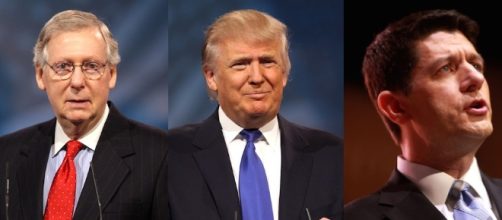Power changes people. Wielding the capacity to change lives or having access to those with power can make a person better or worse, each depending on the circumstances. The deciding factor is whether or not the person has a quality that is often overlooked and even more often broken for personal interests.
Quality
The Oxford Dictionary defines responsibility as “The state or fact of having a duty to deal with something or of having control over someone, the state or fact of being accountable or to blame for something, a moral obligation to behave correctly towards or in respect of”.
All these qualities have direct bearing on the art that we know as Politics.
While it is easy to make facile and naive comments, these are the qualities that make up any good politician, administrator or even a businessman. Good administrators accept that there are limits to what they can do and change for change’s sake is not always a good policy to ensure continued good government.
Campaign promises
During his successful presidential campaign President #Donald Trump constantly made references to “draining the swamp” and to “changing” things to make them work better but these were never defined in his speeches or by a detailed political agenda. The results of this lack of preparation have become obvious to all as orders are challenged and laws withdrawn because they do not satisfy even the members of the President’s own political party.
Traditions
While it may be easy to say that everything is wrong and that change has to come, the methods of the change are one of the measures with which we can judge the actions of any administration in any country.
Each parliamentary system has traditions and practices which have developed over time and in the case of the British system of government the system has existed for centuries,
Politics is by its very nature an activity of change as legislators seek to improve practices in every field of life and work.
These changes will invariably leave a part of the population dissatisfied and thus the methods of change have been incorporated in the legislative process and the best of these survive over time.
Checks and balances
Responsibility in politics includes acting within the norms and practices that comprise each country’s system of legislation and government.
The American system of checks and balances are an excellent example of how the machinery of government is controlled so that anyone who does not act responsibly as in the third part of the definition is blocked to ensure respect for the procedures and the institutions.
Changes do occur and they happen over time as new technology arrives and even from learning from other systems of government. It does not happen simply because one person decides arbitrarily that the system needs to be based on a personal mode. When this happened in the United States the President paid the ultimate price for his actions and the name is easy to remember, Richard Nixon.
For the system to continue working every member of the process must act with the responsibility expected not only by tradition but especially by the citizens themselves.
This is not happening, not only beginning in the unorthodox Oval Office but also by some members of the institutions such as House Intelligence Committee Chairman Devin Nunes who does not respect the norms of behaviour expected by his position, nor when the Oval Office and House Leader #Paul Ryan who proposed a major piece of legislation with no consultation with the Democrats.
Respect for the opposition is as much part of responsibility as respect for the government. In fact, proper government is assured only with mutual respect for the responsibilities of all involved, from the politicians to the bureaucrats and also the press.
The United States is going through a difficult period with serious allegations made against the current Administration and there is only one way for to come out of this period, by acting with responsibility beginning at the top.

